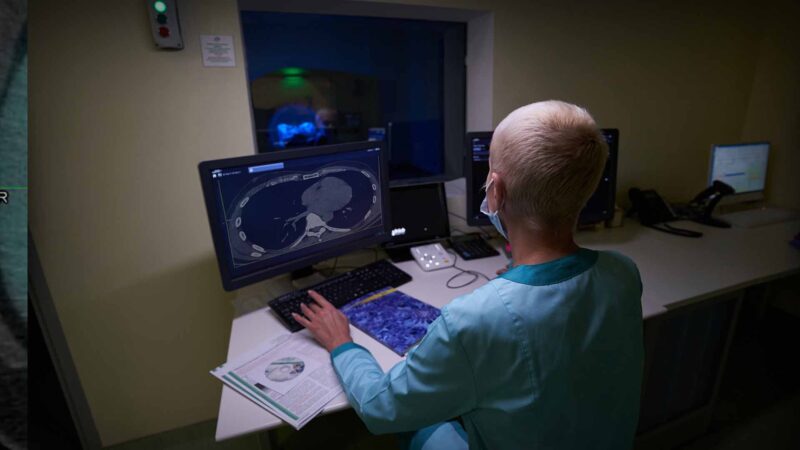Cardiovascular disease (CVD) is responsible for significant morbidity and premature mortality in Australia. Ischaemic heart disease was the leading cause of death in 2020 and cerebrovascular disease was the third most common cause of death.
As the first major update to Australian CVD risk assessment guidelines in over a decade, the 2023 Australian Guideline for assessing and managing cardiovascular disease risk and associated Aus CVD Risk Calculator reflect the latest evidence on assessing, communicating, and managing CVD risk. Developed using Australian-specific data and the latest evidence, it supersedes the 2012 Guidelines for the management of absolute cardiovascular disease risk.
New cardiovascular disease (CVD) Risk Guidelines were commissioned by the Australian Government Department of Health and Aged Care, and developed by the Heart Foundation on behalf of the Australian Chronic Disease Prevention Alliance (ACDPA) (Diabetes Australia, Kidney Health Australia and Stroke Foundation). The guideline has been endorsed by the Royal Australian College of General Practitioners (RACGP).
The new guideline has been developed according to the processes and standards outlined in the 2016 Australian National Health and Medical Research Council’s (NHMRC) Guidelines for Guidelines.
The guideline was developed under the direction and governance of nine expert advisory groups with multidisciplinary clinical and consumer input (see Appendix 1). Expertise was sourced across the disciplines of cardiology, general practice, nephrology, neurology, endocrinology, stroke care, epidemiology, Indigenous health, nutrition, behavioural science, nursing and pharmacy. Special attention was given to First Nations people’s health, and the Indigenous Health Expert Subgroup advised on every aspect of the guideline development.
The project aim was to develop an updated CVD Risk clinical guideline and corresponding CVD risk prediction algorithm enabling best practice assessment and management of CVD risk, overseen by the Guideline Advisory Group which consists of representatives from the ACDPA.
An individual’s risk of developing CVD depends on the combined effect of multiple risk factors. Risk assessment, therefore, remains fundamental to the early detection and prevention of CVD. The guideline encourages early modification of CVD risk factors, helps target medicines to those who will benefit most, and informs clinical decision-making.
The guideline and calculator help healthcare professionals assess, communicate and manage a person’s risk of developing cardiovascular disease. Australian Health Journal spoke with cardiologist and Heart Foundation Chief Medical Advisor, Professor Garry Jennings AO on how HCPs in primary health care can use the resources, guideline and risk calculator in clinical practice.
You Might also like
-
Inaugural vaccine value chain conference talks about Team Australia
For the first time, key decision-makers and thought leaders from government, industry, academia, NGOs, and representatives from the immunisation community converged in a 2 day conference in Sydney hosted by Biointelect, highlighting the transformative potential of collaborative innovation.
-
25 years of non-indexation of nuclear medicine impeding access & affordability
The President of the Australasian Association of Nuclear Medicine Specialists (AANMS), Associate Professor Sze Ting Lee spoke with Australian Health Journal about the following:
Usual levels of nuclear medicine services in Australia each year
Current levels of nuclear medicine services in Australia
How changing demographics in people moving to regional areas has impacted access to nuclear medicine services
The nuclear medicine workforce including trainees
The key recommendations from the pre-budget submissionIn the lead up to the Australian Federal Budget in May 2023, Australian Health Journal reached out to peak health industry bodies to hear about their priorities, either noted in pre-budget submissions lodged with Federal Government in January 2023 or in recent forums such as the Strengthening Medicare Taskforce.
-
Pathology technology at a crossroads
The CEO of Pathology Technology Australia, Dean Whiting spoke with Australian Health Journal about the following:
– Pathology Technology Australia’s key priorities in the coming years
– Current local capability in pathology technology compared to other countries
– How the health system supports change and adoption of pathology technology
– How pathology is perceived by the public and in government as well as how developments in pathology technology are followed and understood
– Observations in the Strengthening Medicare Taskforce ReportIn the lead up to the Australian Federal Budget in May 2023, Australian Health Journal reached out to peak health industry bodies to hear about their priorities, either noted in pre-budget submissions lodged with Federal Government in January 2023 or in recent forums such as the Strengthening Medicare Taskforce.



